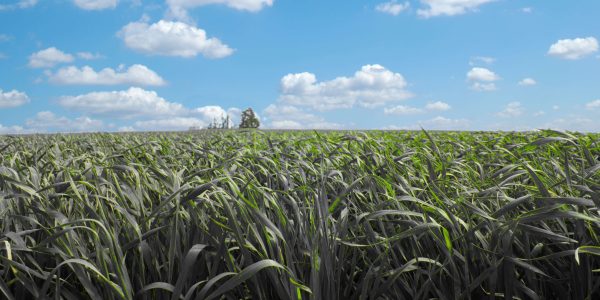opinion
The commentary was written by Tyler McCann, managing director of the Agriculture and Food Policy Research Institute of Canada.
Policy making is not mathematics: most problems that policymakers face do not have one right answer.
Policy making would be easier if it were black and white, but in reality it is full of shades of grey.
Ideally, optimal policy outcomes would require thorough dialogue and debate that considers all grey areas. However, agriculture and food policy outcomes seem to have become less and less optimal in recent times. Part of the reason for this may be that agriculture and food policies are not being given the debate they deserve.
Calling for more debate may not be a popular suggestion amid growing concerns about polarization, and some may not find it particularly beneficial, but Canadian agriculture and food face big problems that deserve more debate than we currently have, and would likely lead to better outcomes.
A more thorough and thoughtful discussion could also lead to what is truly lacking in this area: further policy action.
Although not always in a thoughtful way, debates do take place on big issues. When the previous government was trying to abolish the former Canadian Wheat Board monopoly, there were heated debates across the Prairie provinces.
These big questions sometimes steal all of the discussion focus, but conversely, they are so sensitive that they don’t even take place at all. There are ample grounds for thoughtful discussion about modernizing supply management, but the issue is so sensitive and polarizing that the conversation typically either devolves into unproductive discussions about abolishing supply management, or doesn’t take place at all.
While these big, polarizing issues may not be amenable to thoughtful debate, many smaller issues are, but they aren’t discussed enough. We may lack the space and capacity to have the deep discussions we really need about many of the issues. When discussions do take place, they are often done behind closed doors, without giving the broader community a full understanding of what is at stake and what is different in the gray areas.
Issues such as modernizing the Canadian Grain Commission, the future of land use policy, research priorities, approaches to trade and market access, and the role of government in plant breeding are examples of really important issues where more discussion and dialogue could lead to better outcomes for all involved.
These are important issues with large differences in policy options. It is not surprising that there appear to be very polarized views on these issues. For example, there are good reasons to argue that all farmland should be protected. There are equally good reasons to argue that farmland should be made available for development. Land use policy is better off emerging as the result of meaningful debate between the two sides.
One of the ways CAPI (Canadian Agriculture and Food Policy Institute) fulfills its mission to advance policy solutions is by fostering respectful debate and dialogue. Finding the best ways to do this is an ongoing effort for the organization. CAPI goes beyond publishing research reports that appear to reflect a single view of the organization; it also publishes perspective reports written by thought leaders in the field. These are credible, evidence-based reports, but reflect legitimate differences in expert opinion.
CAPI has a lot of opportunity to do more to solicit more input on more important policy issues, which is the driving force behind the CAPI/RealAg partnership. Agriculture Policy Connection PodcastThe second season will focus on digging deeper into key policy issues related to sustainability policy.
Listening to these episodes is a reminder that it’s easy to dig deep into policy issues but hard to have thoughtful debates. A podcast episode featuring the Conservative and New Democrat agriculture critics and the Liberal chair of the Agriculture and Agri-Food Standing Committee highlighted this dynamic. (listen here)
While the three parties are supposed to present policy choices to Canadians, the three panelists represented a cross-party consensus on agriculture issues.
Agreements are a good thing, but they can also mask fundamentally different approaches to key issues. There is a big difference between environmental policies that focus on investing in changing farm practices and on investing in research and developing innovative solutions, and those that focus on intensive, productivity-oriented agriculture or extensive, low-input, low-output production.
More discussion of these differences would likely lead to better environmental policy outcomes.
It also highlights how even when there is general agreement on an issue in agriculture, it can still be difficult to take action. For example, exempting remaining agricultural emissions from a carbon tax has bipartisan support but political considerations have prevented it from happening.
Just because a particular industry agrees with something doesn’t mean the rest of the country or the ruling party agrees with it.
More thoughtful debate about key issues should also be part of a more dynamic policy process. Failure to deliver incremental improvements over a five-year policy framework will lead to poorer outcomes. A recent CAPI postdoctoral report called for adaptive management in vertical farming policy.
Adaptive management leans into the gray areas. It embodies an approach where you debate options, implement policies, measure the results, discuss the outcomes, and then make changes based on lessons learned. It’s an approach to policy development that reflects that things are not black or white.
It’s a shame more work isn’t being done like this in the agriculture and food sector because things are so murky. If we recognised that there is no single right answer, we might be able to take action and achieve better results.






